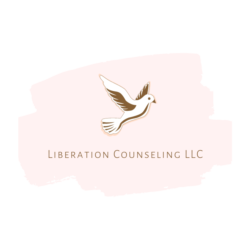What is Anxiety?
Anxiety is often described as having continuous feelings of doubt and worry with physical sensations of muscle tension, sweating, and rapid heartbeat. Anxiety is a normal human emotion that is meant to protect us and an attempt for our bodies to regulate our nervous system. So what does it mean when everyone you know is experiencing some form of anxiety?

Anxiety is our Protector
Anxiety is meant to protect us from danger and allow us to react faster to emergencies or stressful events.
If you have read a news headline recently about mental health I am sure you would have seen something like, “We Must Address (insert city name here) Mental Health Crisis” “Mental Health Conditions Surging Post Pandemic” “Is Social Media Destroying Kids Mental Health?” Often the decline of human mental health is blamed on the individual or an isolated stressful event or issue. I challenge you to do a Google search about mental health and see what comes up. Rarely will you see an article titled, “How Anxiety is Trying to Protect Us From Late-Stage Capitalism, Oppression, and is a Natural Reaction to the Stress and Trauma in Our Society. “
We are taught that our anxiety is an individual problem instead of unpacking how anxiety is an appropriate reaction to things like perfectionism, competition, and grind culture. Anxiety is an appropriate reaction to witnessing a Genocide take place. Anxiety is appropriate when school shootings are on the rise. Anxiety is appropriate when we feel detached from our communities, friends, and family. Anxiety is appropriate when we cannot afford to get our basic needs met. Anxiety is appropriate when we have life transitions. Anxiety is appropriate when we experience collective and ongoing trauma from systems of oppression!
Common Anxiety Feelings and Experiences
- Sweating
- Heart racing
- Chest tightness
- Shortness of breath
- Headaches, muscle aches, and stomach aches
- Feeling nervous, restless, and tense
- Having a sense of impending danger, panic, or doom
- Trouble focusing
- Trouble sleeping
Finding Anxiety Relief
How do you experience relief from anxiety within a society that supports behaviors and systems that are causing you harm?
We acknowledge the harm and hold space for the pain. We move away from thinking there is something wrong with us. We lead with curiosity about what our anxiety is trying to tell us. We re-evaluate our relationship to our anxiety and ways of relating to it. Everyone is unique and has different perspectives, needs, and definitions of dysfunction. Everyone has different traumas, triggers, and coping skills. The key is to remain hopeful, dream of a safe existence, and connect with your community, body, mind, and spirit.
Addressing Anxiety in Therapy
In therapy, we will assess all of those things and create a personalized plan that is holistic and remains person-centered. This means we will look at your mental and physical health, trauma history, systems, environment, and social supports with an understanding that you are the expert on your existence and experiences. We will also evaluate how your belief system and thoughts surrounding your anxiety impact the way you feel and react to your anxious feelings. This includes your understanding of your warning signs, physical sensations of anxiety, and triggers.
We will also work on coping skills that fit your needs and are effective and sustainable. Teaching breathing exercises and telling people to relax does not touch on how difficult it is to manage our anxiety in this society.
There is so much healing that occurs in being seen and validated in our emotions and experiences. That is why normalizing anxiety as a human emotion that holds information about our environment can bring relief knowing our bodies are reacting appropriately to our environments or past experiences.
Somatic Experiencing and DBT Therapy for Anxiety
Two interventions I like to use with individuals experiencing anxiety are somatic therapy and dialectal behavioral therapy (DBT).
Somatic Therapy helps strengthen the mind-body connection to help with healing. People who experience anxiety often find themselves ruminating about anxious thoughts, planning for worst-case scenarios, anxiety attacks, and spiraling. When our body is activated in fight or flight response these skills can be helpful in dangerous situations. However, when we are safe those skills are no longer needed and can feel overwhelming and hurt. Somatic therapy utilizes body-centered techniques to focus on the nervous system and learning how to feel safe in your body and connect with your emotions. To learn more about somatic and embodiment tap here.
Dialectal Behavioral Therapy helps you lead with self-compassion and acceptance of your feelings while learning coping skills. This looks like learning more about your needs and window of tolerance, the role of emotions, describing your emotions, and emotional relation skills such as mindfulness and distress tolerance. DBT helps you learn how to connect with your emotions and understand the information they provide to you.

